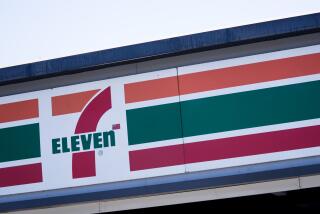The Hard Facts : Several water-softening systems are available to fight mineral deposits.
- Share via
Tap water blends in pretty well. Unless it’s brown, filmy or otherwise discolored or oddly textured, it all looks pretty much alike to the naked eye.
But looks can be deceiving, as anyone with hard water can attest.
Hard water is loosely defined as water that contains an excess of mineral deposits, namely calcium and magnesium. Although the deposits themselves aren’t visible, their effect can be observed and felt.
Water spots on glasses and dishes and rings around toilets and sinks are signs of hard water. Clothes that don’t wash as clean as they should and soap that doesn’t produce a quality lather are other indicators.
Hard water is measured in grains of hardness; anything more than about five grains is considered hard. Given that some areas of Ventura County top 40 grains, the term is relative.
The source of the water determines the hardness: Well water, for instance, is harder than lake water, meaning that water on the west side of Ventura is softer than water on the east side of the city because the west side gets its supply from Lake Casitas.
But hard water can always be treated.
Homeowners can hook up water-softening systems that will absorb the minerals, thereby improving the quality of the water. Water-softening units can be purchased at department stores and hardware stores. Companies such as Culligan, Rayne and Pacific Water Conditioning sell complete systems or simply exchange tanks on a regular basis.
*
Ventura’s Water Store sells units starting at $460 for a basic water-softening system, serving an average home with average water usage. Cost varies with the size and design of the system.
The store charges an additional $130 for a basic installation service. Otherwise, employees will talk do-it-yourself types through the process.
An additional cost for such systems is sodium chloride (salt) or a potassium chloride substitute. The hard water is absorbed by resin beads in the softener system and the salt regenerates the beads once they are saturated.
A 50-pound bag of salt costs about $5, and a 40-pound bag of potassium chloride (a fertilizer) costs about $8.
Dan Harasty, co-owner of the Water Store, said the benefit of potassium chloride is that it doesn’t hurt plants when it ends up being recycled as irrigation water. It can also be preferred by those on low-sodium diets.
When purchasing a water-softening unit, Harasty said, buyers need to decide whether they want a timer system or a metered system. Timer systems regenerate the resin beads on a predetermined schedule. Metered systems monitor water used and regenerate when needed.
The metered models are a little more expensive, with the basic Water Store unit priced at $530.
*
Newbury Park-based Pacific Water Conditioning provides exchange services in Los Angeles and Ventura counties. The company also sells new water-softening systems.
Cost of the exchange service varies with the amount of water consumed and the hardness of the water. Generally, the monthly cost ranges from $17.50 to $40, with most in the $19.50 to $28 range.
As for sales, a timer unit costs about $950 and a metered unit is priced at $1,450. A twin alternating system--in which two tanks are used alternately--is $1,850. All prices include installation.
*
With the Rayne service, prices again vary by location and need. As an example, a two-person home on the west side of Ventura could cost $20 to $25 a month in an exchange tank service depending on water usage. Purchase and installation of a system would cost about $1,050.
*
At Sears in Thousand Oaks, systems range from $399 to $799, with installation service and cost worked out with a plumbing contractor.
A final note: Keep an eye on new state regulations. An Assembly bill scheduled to go into effect Jan. 1 would eliminate the use of timer-based systems for environmental purposes. And for safety, make sure that the seller of your softener system has a state contractor’s license in water conditioning.
More to Read
Sign up for Essential California
The most important California stories and recommendations in your inbox every morning.
You may occasionally receive promotional content from the Los Angeles Times.













